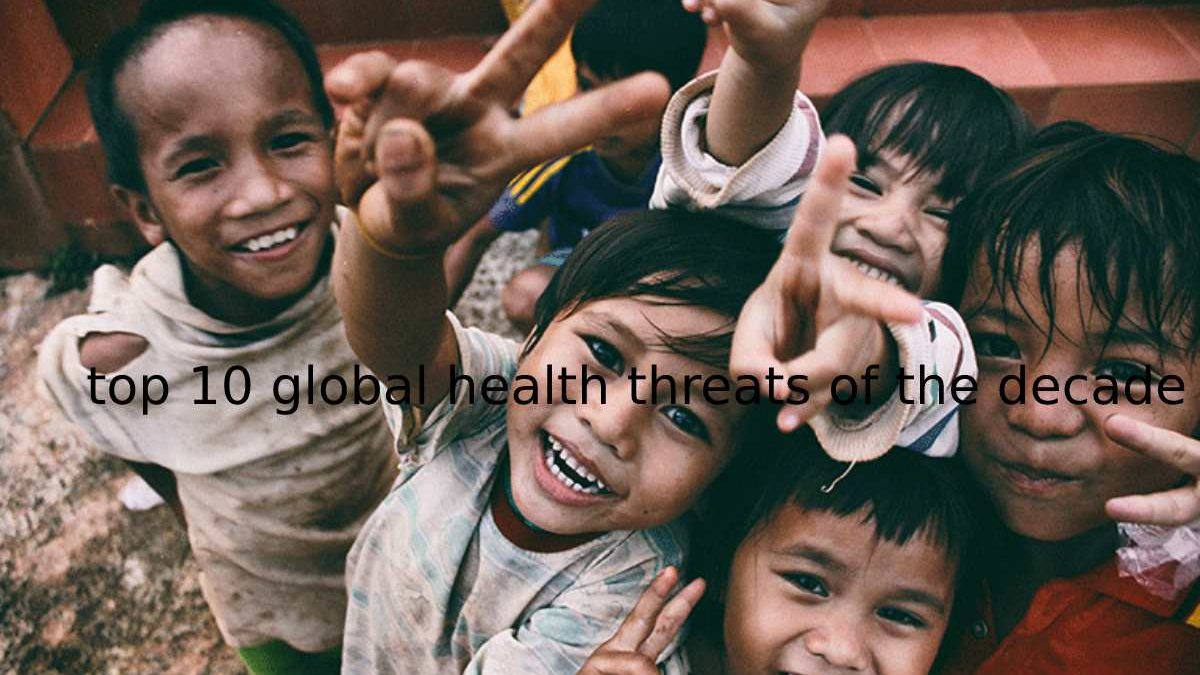All of the health challenges on the WHO list are urgent and interrelated. And every challenge requires a coordinated effort from the global health sector, policymakers, international organizations, and communities. However, there is concern that world leaders are not investing enough resources in primary health priorities and systems.
According to the World Health Organization, the maximum pressing global health challenges for 2020.
These are the top challenges on the list.
Table of Contents
1. Introduce Health Into The Climate Debate
The climate crisis poses one of the greatest threats to the planet and the health of the people who live on it.
The emissions kill around 7 million people each year and are responsible for more than a quarter of deaths from diseases such as heart attack, stroke and lung cancer.
At the same time, extreme weather events such as droughts and floods increase malnutrition with increasing intensity and contribute to the spread of infectious diseases such as malaria.
2. Ensuring Health In Times of Conflict and Crisis
In 2019, nearly 1,000 attacks on health workers and medical facilities were recorded in 11 countries, killing 193 medical workers. Despite increased surveillance, many healthcare workers remain at risk.
For the tens of millions of people forced to flee their homes, access to medical care is often limited or non-existent.
3. Make Health Care Fairer
The gap within the rich and the poor is widening, especially regarding healthcare access.
People in rich countries can expect to live 18 years longer than their poorer neighbours, and wealth can also determine access to health care in individual countries and cities.
Rising global tolls of diseases such as cancer, diabetes and chronic respiratory diseases are having a more significant impact on low- and middle-income countries, where medical bills can quickly eat up the limited resources of the poorest families.
4. Expand Access To Medicines
Although many people worldwide take access to medicines for granted, drugs and vaccines are not an option for nearly a third of the world’s population.
The challenge of expanding entree to medicines in areas where little or no healthcare products are available includes tackling substandard drugs and counterfeits. Not only do these products endanger a patient’s life because they do not treat a patient’s condition, but they can also undermine trust in medicines and healthcare providers.
5. Stop Infectious Diseases
Infectious diseases stay to kill millions of people, most of whom are poor. Unfortunately, it is unlikely that this picture will change shortly.
Avoiding the spread of diseases such as HIV, tuberculosis, and malaria depends on adequate funding and robust health systems. But in some areas, anywhere they are most needed, these resources are scarce.
6. Prepare For Epidemics
Health workers wearing protective gear prepare to transport an abandoned body showing Ebola symptoms at Duwala market in Monrovia August 17, 2014. To control the Ebola outburst in West Africa, Liberia has quarantined remote villages at the epicentre of the virus
Additional investments are required to prepare for eruptions.
Airborne viruses, or diseases transmitted through mosquito bites, can spread quickly and have potentially devastating consequences.
Currently, more time and incomes responding to a new strain of influenza of an outbreak of yellow fever than making for future affairs. However, the question is not whether a dangerous virus will appear, but when.
7. Protection Of People From Dangerous Products
Many poorer parts of the world look at malnutrition and food insecurity, while obesity and diet-related problems rise worldwide.
We need to rethink our diets, reduce consumption of foods and drinks high in sugar, salt and harmful fats, and promote healthy and sustainable eating. To this end, the WHO works with countries to develop strategies to reduce our dependence on harmful foods.
8. Invest In The People Who Defend Our Health
Health workers are in short supply worldwide. Sustainable health and social care schemes depend on well-paid and well-trained staff capable of delivering quality care. WHO research predicts that there will be a shortage of 18 million health workers by 2030, mainly in low- and middle-income countries.
He said that new investments are required to train health workers and provide decent wages for professionals properly.
9. Safety For Young People
More than 1 million young people between the ages of 10 and 19 die each year. The leading causes include traffic accidents, suicides, domestic violence, and HIV or lower respiratory tract diseases. But can prevent many of these premature deaths.
Policy makers, educators and health professionals should promote positive mental health in adolescents to prevent illicit drug use. Alcohol abuse and self-harm. In addition, programs that raise awareness about contraception, sexually transmitted infections, and prenatal care. Are helping to address some of the underlying causes of teenage deaths.
10. Earn Public Trust
Providing safe and reliable healthcare to patients first requires earning their trust, which can be damaged by the quick spread of misinformation on social media. For instance, the anti-vaccination movement has led to deaths from unnecessary diseases.
But using social media can likewise spread trusted information and build public trust in healthcare. Community programs are another way to increase confidence in healthcare and practices that prevent the spread of diseases, such as B. vaccinations or the use of condoms.

